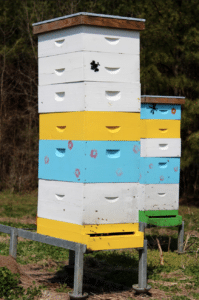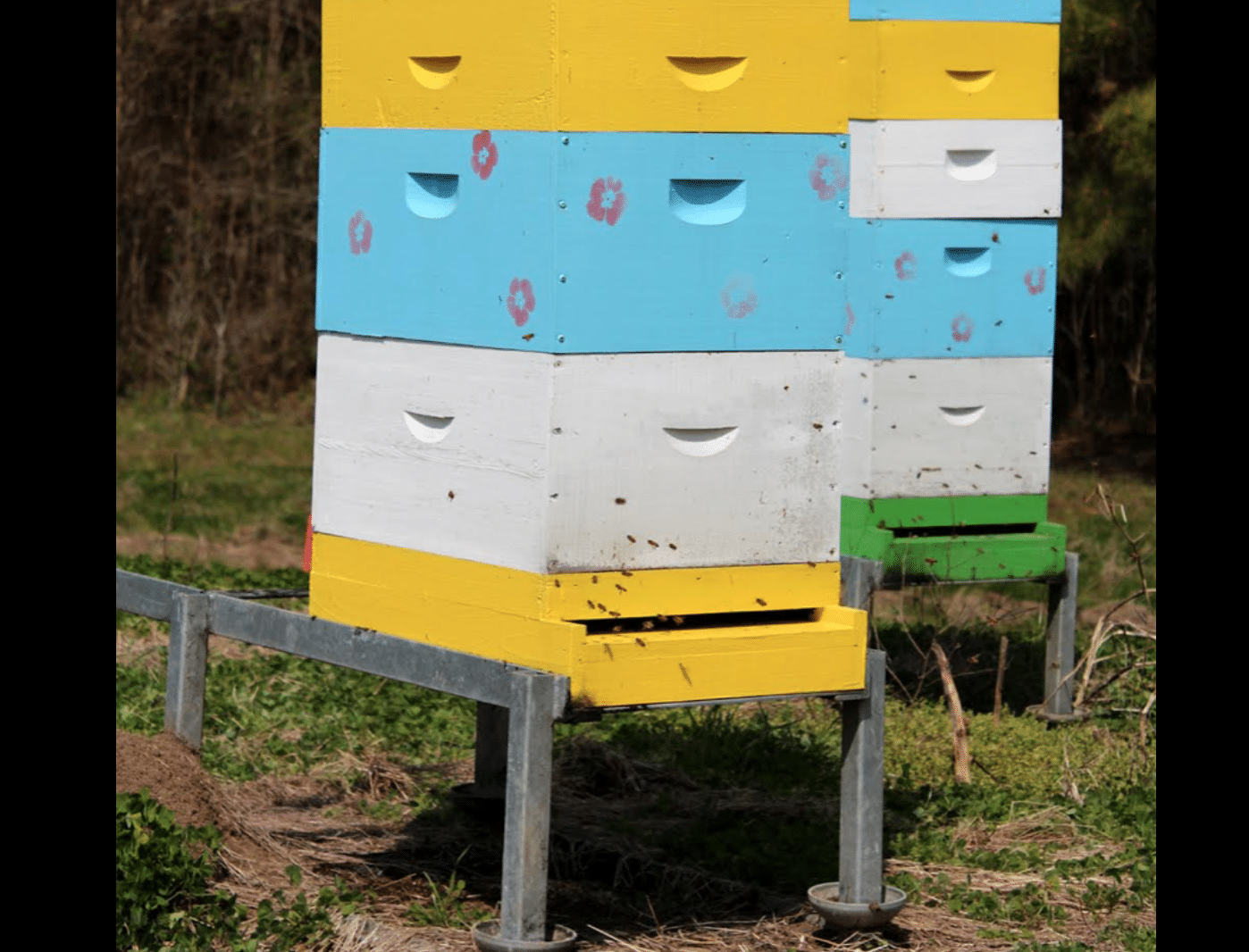Healthy hives, consumer demand and crops for pollination are issues demanding beekeepers’ attention in 2018.
Jeff Harris, a bee specialist with the Mississippi State University Extension Service, said bees are doing better than some reports might suggest.
“The people monitoring bee health suggest that commercial bee health is improving, and losses are declining,” Harris said. “The worst problem we’ve seen began 25 years ago with the varroa mite, which we are still addressing.”
Johnny Thompson, president of Mississippi Beekeepers Association, said producers are anxious for researchers to develop new products for the battle with varroa mites.
“If mites become resistant to our current chemicals, we will be in trouble,” he said.
On March 14, the U.S. Department of Agriculture released the Mississippi honey report. The National Agricultural Statistics Service estimated Mississippi producers with five or more colonies yielded 1.04 million pounds of honey in 2017, a 36 percent decrease from 2016.
Thompson said that before 2017, the five-year state average was about 1.6 million pounds. Five years ago, Mississippi produced right at 2 million pounds of honey.
Based on results of the bee and honey survey, the report indicated 13,000 honey-producing colonies in the state, down by 6,000 from the previous year. The report indicated that producers’ honey stocks in December were 83,000 pounds, down 27 percent from 2016.
Thompson said he believes most of the larger producers actually added more colonies.
“Most producers are adding colonies, but production is still going down,” he said. “2017 was one of our worst years in several years. Rains last spring hurt tremendously. Summer wasn’t great, but conditions rebounded in the fall.”
Thompson said bee producers could not make a living just on honey production.
“Our larger producers drive the state’s industry through pollination services, not honey, especially as they serve California’s almond industry,” he said. “They have pollination contracts to take bees to California in February for the almond crop, which supplements their honey profits.”
Harris said the U.S. imports large amounts of honey every year, and those cheap imports have hurt locally produced products.
“We have had problems with adulterations from other countries, like Brazil and China. Honey packers may blend imported products with U.S. honey,” Harris said. “Local honey can help with some allergy issues, but not with all. To improve chances for benefits, honey should be produced from the location where you live and during the season when your allergies flare up.”
Harris said spring honeys are clearer, and they darken as the year progresses. Honey lovers often prefer different flavors based on the season.
One issue on beekeepers’ radars is how to control an imported, invasive tree that is popular for honey production. The Chinese tallow tree, sometimes called a popcorn tree, grows from east Texas to Florida. The tree’s aggressive growth habit makes it unpopular with many landowners and hunters, especially those with an interest in waterfowl.
Thompson said Chinese tallow trees are heavy bloomers and produce significant amounts of honey.
“About 70 percent of the south Mississippi honey crop comes from Chinese tallow,” he said. “Producers are quite dependent on these important nectar sources for honey. When bees start going to cotton and soybeans, we have to worry about pesticide issues- not so with the trees.”
Thompson said opponents are pushing for a flea beetle to be imported that would attack and eradicate the trees.
“Beekeepers are trying to convince officials not to import one species to control another invasive species,” he said.





